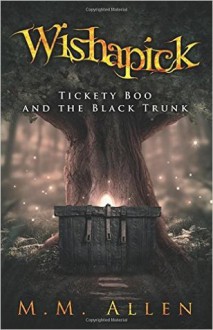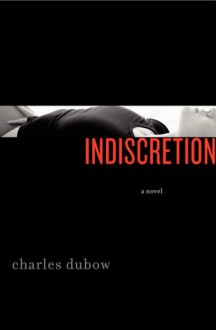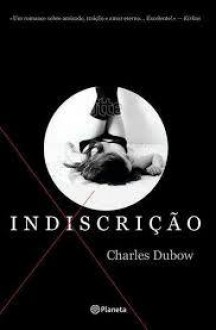
That afternoon was my first inkling that there was more to the world than it appeared. Like the glimpse of a secret garden through a crack in the door, I discovered something I hadn’t known was missing. Where colors were brighter, tastes stronger, feelings deeper. And once I recognized it, I wanted it, missed it—and was unsure I would ever find my way back to it. It was a land of Cockaigne, the hidden kingdom.
Girl in the Moonlight (originally, and better titled Naked in the Moonlight) is the second novel by Charles Dubow, author of the wonderful, steamy 2013 novel, Indiscretion. In …Moonlight, he brings us back to the Hamptons that was the setting for much of the earlier book. Wylie Rose is closing down a summer house where he’d spent much of his youth, and remembering. No madeleines required. But an evocative painting brings back to him, and us, the story of a lifetime of passion, obsession, and love.

Charles Dubow
How young is too young to meet The One? Wylie was only 10 when he first met Francesca, at 12, the oldest of the four Bonet sibs. A hidden kingdom of attraction opens its doors to him. He falls hard for her, literally. Wylie forms a close friendship with Aurelio Bonet, Cesca’s younger brother, and through this bond, Cesca will pop into and out of Wylie’s life for the duration of his Odyssey. The driving force to the story is the will-they-or-won’t-they-wind-up-together question as they sail through their lives. Of course, even as a young thing, Cesca is special. In adolescence she begins to take on the characteristics of a siren and sings for all the ships to hear as an adult. Wylie may have known at some level that he should have plugged up his ears (and covered his eyes, for that matter) but he would spend most of his life tied to the mast, enduring the song. Will he be drawn in to his own destruction?

Ulysses and the Sirens - by John William Waterhouse - from the National Gallery in Melbourne
There are certainly gross similarities in form with Dubow’s earlier work. We revisit the Hamptons, and the company of the very well-to-do. The author is of this set and writes what he knows. There is an almost supernaturally attractive female, and a smitten male. (Indiscretion actually had two smitten males, the secondary one having a bit more in common with Wylie than the primary) Trouble soon follows, with a trail of emotional collateral damage. But, lest one suspect that Dubow has shoved off into the water to net the same fish, there are significant differences. In the earlier book, a successful, well-known middle-aged, married man is drawn from (leaps from) his life by an admiring young thing. Here, the two know each other from childhood, growing together and apart over their lives. The time span of the core story (not backstory) is far greater in Moonlight, decades instead of a few years. Indiscretion had much to do with discontent with one’s life, and insecurity about one’s place in it. There is some of that here but Wylie and Cesca are not struggling with the detritus of generations. They seem perfectly content to employ their advantages in pursuit of their movable dreams, trying this and then that in hopes of plotting a steady course. Wylie, for example, opts to pursue a course of study, so enrolls in Harvard for his advanced-degree training, as if it were the equivalent of stopping off at the corner store to buy a lottery ticket. While both novels have a love story at their core, among the one-percent, so do a billion other books. There is a geographical sweep in Moonlight that extends far wider than that in Indiscretion, with stops in Spain, Paris, London and even some connections to Tokyo and Africa, in addition to the usual Hamptons/NYC setting. Indiscretion and Moonlight are indeed very different tales.
There are several elements in Moonlight that stand out. First there is the tension of wondering if the two will ever get together. That sort of thing may be standard fare for stories of this kind, but how that is executed is significant. I found it was quite well done here. Plenty stands in the way of the two getting together (has to be, of course, or there wouldn’t be a story to tell) not least Cesca’s ability to attract men. Second, there is a feeling of melancholy, which may summon your own regrets to mind.
What if I had chosen differently? Would I be here at this moment? There are the dreams our parents have for us, and then there is the life that we create for ourselves. It is impossible to know. The secret, they say, is not to regret—but that, I have found, is impossible. The most one can hope for is to forget. Memory, though, is a poor servant; it bursts in on you when you least expect it.
And there is the ever-present element of hope. It is not a misdirect, there really is a chance they might get together. But I will not tell if they do or don’t. Of course if hope is a thing with feathers, is that a good thing? Would it be better if hope were a thing with scales?

Ulysses and the Sirens - by H.J. Draper - from Wikipedia
I have spent as much time with the one percent as I have with the Illuminati, so I did not feel much connection based on socioeconomic commonalities. On the other hand, I have had my share of emotional disappointments, false steps and traumas, so on a feeling level I found that it was quite possible to connect. Wylie is a very relatable character, a decent guy trying to find himself. Effective writing takes you past surface differences to core emotional experience. Can she hold him off forever? Doe she really care for him or is Cesca only toying with Wylie, luring him to his own destruction? Can he endure long enough? Should he? What about having a real life and not one based on a myth? At what point does one cross over from being dependable to being a doormat? When do you just throw up your hands and sail back out to sea? And what might happen if you did?
Dubow has a wondrous ability to describe places, imbuing them with life, with history. He can paint a scene beautifully, which is not surprising given that he once planned to be a painter. He can create living characters. Wylie Rose is the evidence. None of the other characters is as fully realized as Wylie, but they are still well done. Aurelio was also very appealing, but we do not see enough of him. Cesca’s path may seem scattered, but Dubow’s explanation for her zig-zag route is believable. I found the other characters much less well realized, but not everyone has to get center stage. They are filled in enough to contribute to the story. The author also has a wondrous gift for communicating the ambivalence we all experience, in looking back, at roads not taken.
Girl in the Moonlight will keep you turning pages, maybe not so quickly as Indiscretion did, but it is a solid read. It will pull you in and hold you, without, thankfully, dashing you on the rocks.
Review posted – 5/8/15
Publication date – 5/12/15
This review has also been posted at Cootsreviews.com
======================================EXTRA STUFF
Links to the author’s Twitter and FB pages
A piece Dubow wrote for Newsweek Magazine on Stuttering
About five minutes of the audio book
My review of Indiscretion


 Log in with Facebook
Log in with Facebook 










